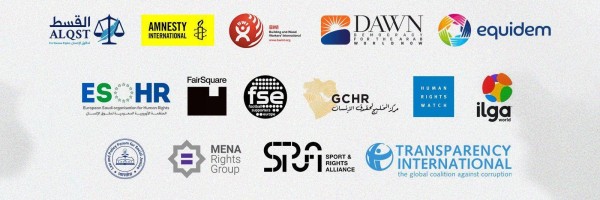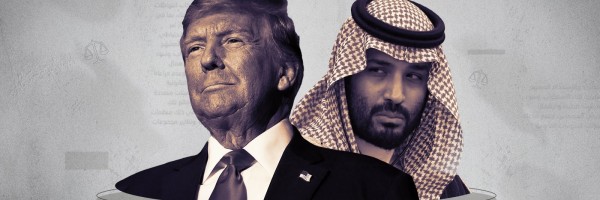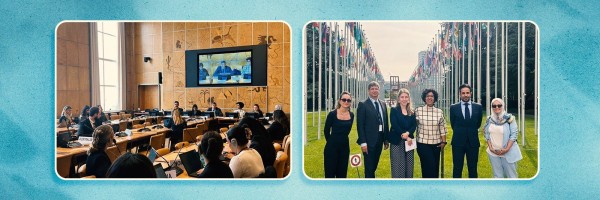ALQST and the Gulf Centre for Human Rights recently sent a submission to the UK Foreign Affairs Committee, in response to a call for written evidence for the Committee's inquiry on the Foreign and Commonwealth Office (FCO) and global media freedom. The submission is avaliable here.
The submission, which was sent in August 2019 and published by the Foreign Affairs Committee on 3 September, addresses threats to journalists, human rights defenders (HRDs) and online activists related to violations of freedom of expression, in eight countries in the Middle East, including in Saudi Arabia, which scored 172nd out of 180 countries in the 2019 Global Press Freedom Index published by Reporters Without Borders.
The section on Saudi Arabia reads:
"The Saudi government exerts total control over all domestic media, and prevents activists and independent journalists from expressing their views. The authorities have targeted a number of websites and Internet accounts by blocking and hacking them, and have contracted foreign companies to carry out cyber espionage and hacks. The authorities routinely hack websites and block those that might be of interest to the public, such as the websites of ALQST, GCHR, Amnesty International, and all sites that might contain material critical of the Saudi regime.
The authorities have not only escalated their war on free speech but also cracked down harshly on those calling for it. The Saudi authorities systematically harass, prosecute and convict anyone exercising their rights to freedom of expression. Many journalists, bloggers, online activists and HRDs are serving long-term prison sentences, including human rights defender Waleed Abu Al-Khair, blogger Raif Badawi, and journalist Alaa Brinji.
These individuals are convicted under draconian laws that are used to stifle freedom of expression in the kingdom, including the Anti-Cybercrime Law (2007) and the Counterterrorism Law of 2014 (amended in 2017), on charges including “inciting chaos,” “jeopardising national unity,” and "harming the image and reputation of the king and the state.” Many are tried in the Specialised Criminal Court, set up in 2008 to hear terrorism cases.
Since 2017, in particular, increasing numbers of bloggers, journalists and citizen journalists, have been arrested. Leading women’s rights activists and bloggers were arrested between May and July 2018, including activist Loujain Al-Hathloul, blogger Eman Al-Nafjan and journalist Dr. Hatoon Al-Fassi. Some women were subjected to torture and ill-treatment, and over a dozen are now on trial on charges relating to their human rights activism, including contacting foreign journalists. Many remain in prison. At least four more journalists were arrested in the latest wave of arrests in April 2019.
There has been a rise in the practice of enforced disappearance in Saudi Arabia, including Yemeni writer and journalist Marwan Al-Muraisi and Saudi journalist Turki Al-Jasser, who have been disappeared since June and March 2018 respectively. In May 2019, Al-Muraisi was finally permitted to contact his family and let them know that he is alive, but his location remains unknown. There has not been any news whatsoever on Al-Jasser.
The brutal extrajudicial killing of Saudi journalist Jamal Khashoggi in October 2018 shone a light on Saudi Arabia’s total crackdown on freedom of expression, including abroad. On 26 June 2019, the UN Special Rapporteur on extrajudicial, arbitrary or summary killings, Agnes Callamard, presented her report into the murder of Jamal Khashoggi. It concluded that Khashoggi was the "victim of a premeditated extrajudicial execution... overseen, planned and endorsed” by high-level officials including the Crown Prince."
In addition, the submission makes several recommendations, to the UK government, Internet Service Providers (ISPs), and to States, including for the UK government to press counterparts in the Gulf region to repeal repressive articles in cybercrime laws, press and media laws and the penal code which are sued to prosecute the exercise of digital rights and freedom of press and to rescind prison sentences for the exercise of digital rights by HRDs, bloggers, journalists and netizens critical of corruption, violations of human rights and wars.
ALQST welcomes this inquiry, which was launched by the Foreign Affairs Committee on Friday 25 January 2019 in light of the FCO's pledge to defend media freedom, and we await their final report.
For the FCO's pledge to be made into reality, we call on the UK to exercise a consistent approach promoting media freedom, including with countries with whom it has a close relationship such as Saudi Arabia.




